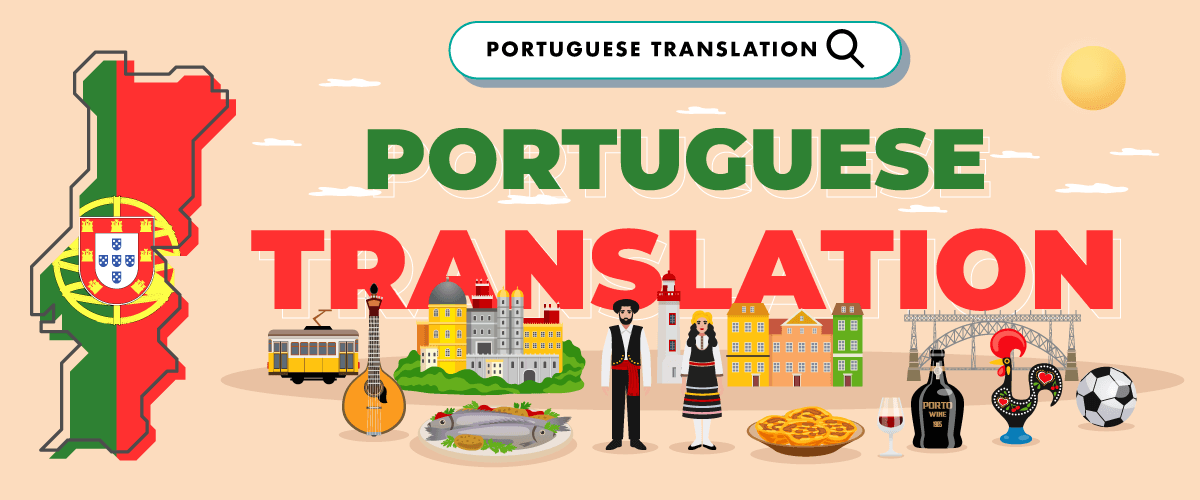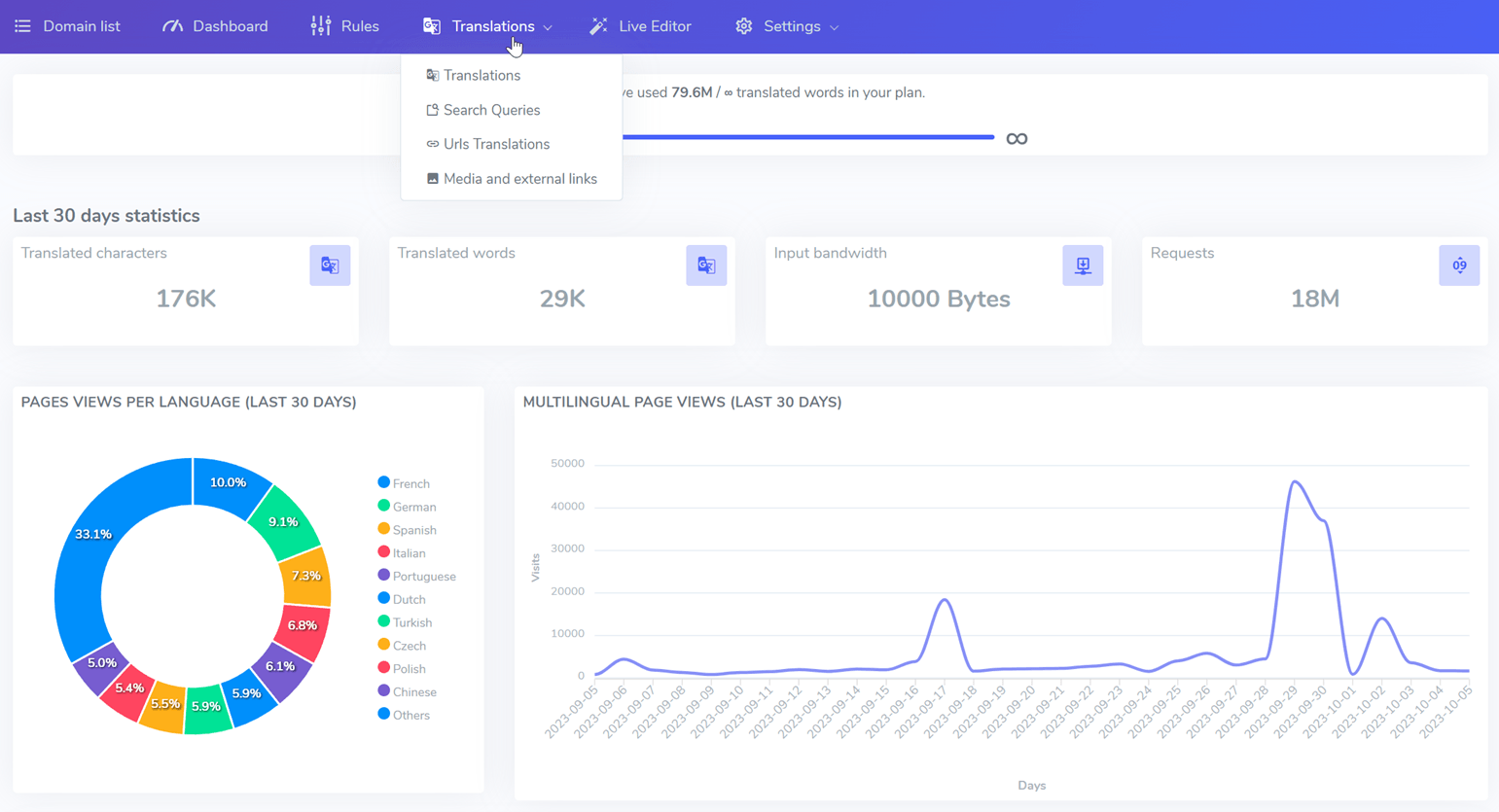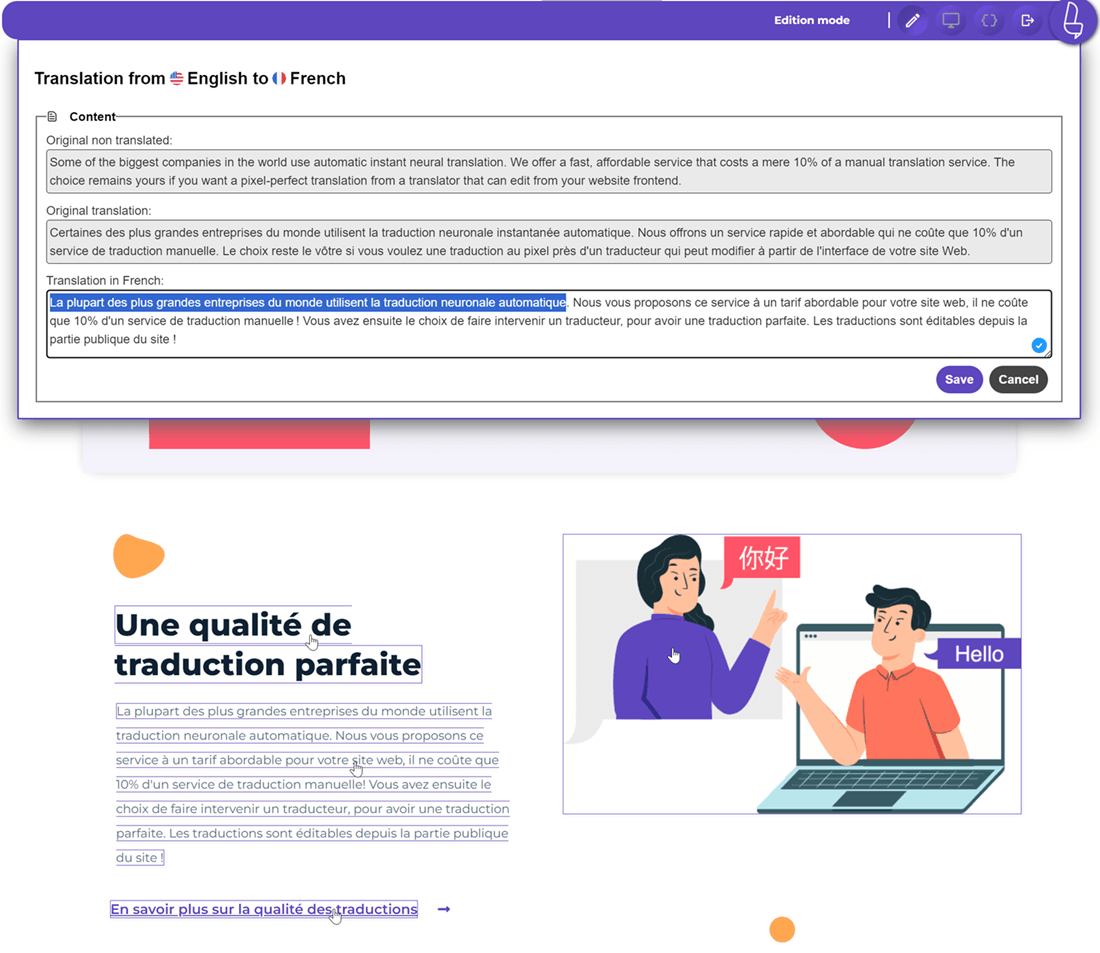Having a multilingual website can help bring in high website traffic from various visitors around the world. Therefore every web developer should have prepared this, namely the translation of content into several languages, especially languages that are widely used in the world.
Portuguese is one of the most spoken languages, so you should add it to the translation options.
Then how to translate websites in Portuguese? So, in this article, we will discuss everything from what Portuguese is, how it differs from Brazil, the translation method, to how to translate using an automatic translation service!
Portuguese speakers reach 263 million
According to the Ethnologue website, until now, the Portuguese language has been used by 263 million people, while native speakers of this language have reached 236 million. This is because the Portuguese language is used in nine countries, spread across Asia, Africa, South America, and Europe. One of the countries that use this language the most is Brazil.
Here is a list of countries where Portuguese is an official language, along with their estimated populations as of 2023 (according to World Bank data):
- Brazil – 215.3 million
- Portugal – 10.3 million
- Angola – 32.9 million
- Mozambique – 33.6 million
- Guinea-Bissau – 2.0 million
- Timor-Leste – 1.4 million
- Equatorial Guinea – 1.5 million
- Cape Verde – 0.6 million
- São Tomé and Príncipe – 0.2 million
Note that while Portuguese is an official language in these countries, there are also other languages spoken in each country as well.
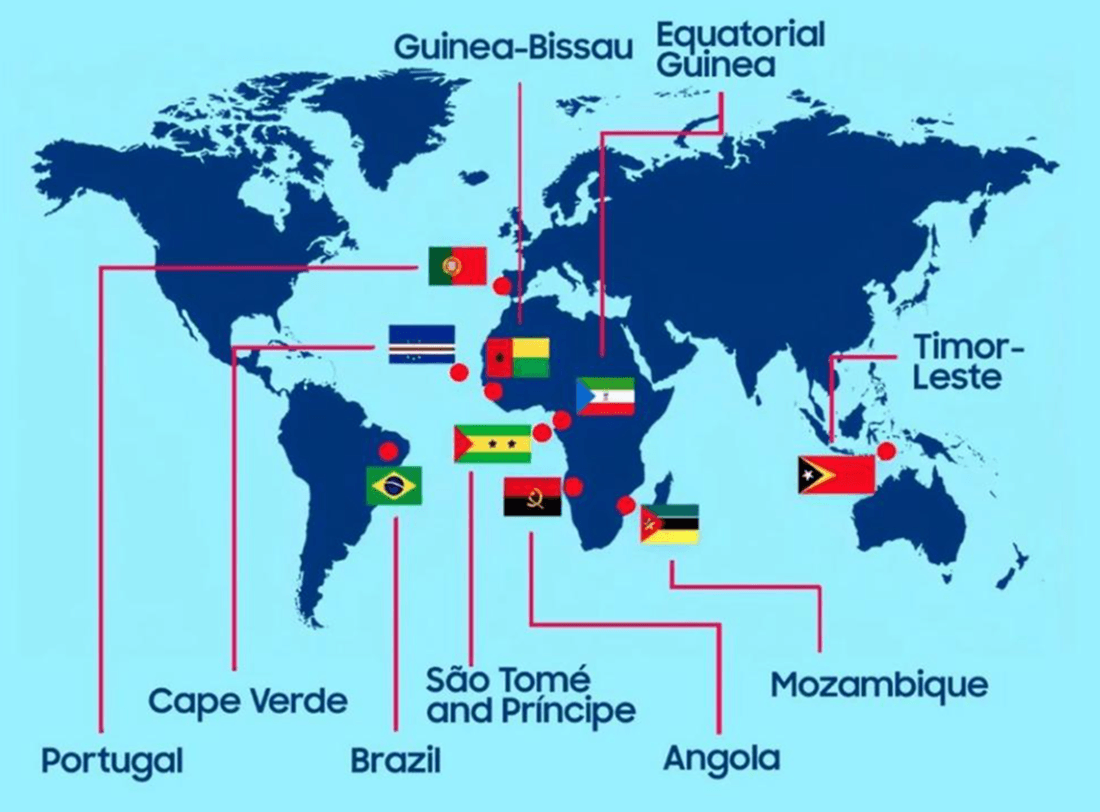
Until 1758, Portuguese was not the mother tongue in Brazil. Over time, language changes occurred due to increased contact with European and Asian immigrants.
Other countries colonized by Portugal spoke Portuguese which was closer to their mother tongue. Because they don’t have external contacts from other cultures that can affect their way of speaking.
These countries gained independence much more slowly and had much more contact with Portugal during their early development.
Given the large amount of Portuguese spoken, as a site owner for both personal and business sites, we recommend that you add this language as a translation option.
The more speakers of a language, the greater the opportunity for you to reach their market.
Portuguese vs Brazilian
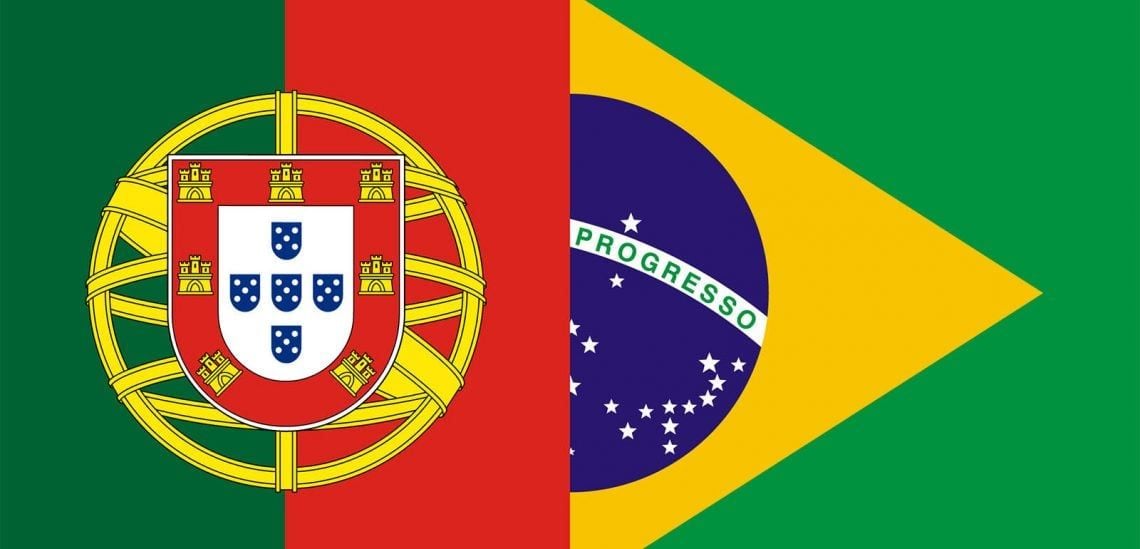
Portuguese is actually divided into two namely European Portuguese spoken in Europe and Brazilian Portuguese spoken in Brazil. The two languages have different characteristics, even though they have the same name but if both Europeans and Brazilians speak Portuguese, they will often have a little trouble.
The differences in the types of language can be seen from several things, including the following.
Pronunciation
The way of pronouncing Brazilians and Europeans is different. Brazilians say vowels are longer and wider.
Meanwhile, the Portuguese pronounce words with their mouths closed and don’t pronounce too many vowels.
The pronunciation of some consonants is also different, especially when the S is at the end of a word. In Brazilian Portuguese, the S at the end of a word is pronounced as SS, in Portugal, it is pronounced as SH.
The accent
Some people find Brazilian Portuguese more pleasant to hear with its open vowels, while European Portuguese sounds are a bit challenging. The Brazilian accent has a lilting rhythm and is strong to foreign ears, making Brazilian Portuguese easier to learn and understand.
Grammar and spelling in Portuguese
In terms of grammar and spelling, some words are spelled differently. For example, acceptance in European Portuguese is “receção,” whereas in Brazilian Portuguese there is a sound for spelling “recepção.” In other words, there is an additional p sound in Brazilian Portuguese.
Brazilian Portuguese sometimes borrows from American English, ignoring its Latin roots. European Portuguese, on the other hand, usually adopt words from Latin roots and retain their original spelling.
Portuguese vocabulary
Furthermore, in terms of vocabulary, the two types of Portuguese have their respective mentions. For example, the word “train” in Brazilian Portuguese is called “trem”. Whereas in European Portuguese it is called “comboio”.
Both mentions actually come from English. Vocabulary differences are the main reason why European Portuguese speakers may have difficulty understanding Brazilian Portuguese and vice versa.
Those are some of the differences between European and Brazilian Portuguese.
A few essential ways to translate a website in Portuguese
In translating into Portuguese there are three ways that can be done, namely through human translators, common tools, and using neural machine translation technology.
Each of these options has advantages and disadvantages. Below we will discuss one by one.
Translate a website in the Portuguese language with human translation

The first option is to translate the website into Portuguese using human translation. It should be noted that most large translation companies use a combination of machine translation and human proofreading. Only small websites can only rely on human translation. However, professional translators can be hired for a fee to provide results that cannot be replicated by machines. Many agencies offer competitively priced human translation services.
Human translation has several advantages, such as considering context, structure, and linguistic nuances. In addition, the process usually includes rigorous procedures such as proofreading and quality control.
With a human translator, you will have to spend quite a bit of money if you translate a lot of words. However, on the positive side, your translation results will be of higher quality.
But do not rule out the possibility of human error.
Using DeepL or Yandex public tool for the Portuguese language translation
The second option is to use public tools, now there are many public tools that you can use to translate. One example is Google Translate which is machine translation to translate the web into all languages.
However, here we will use DeepL which focuses on European languages.
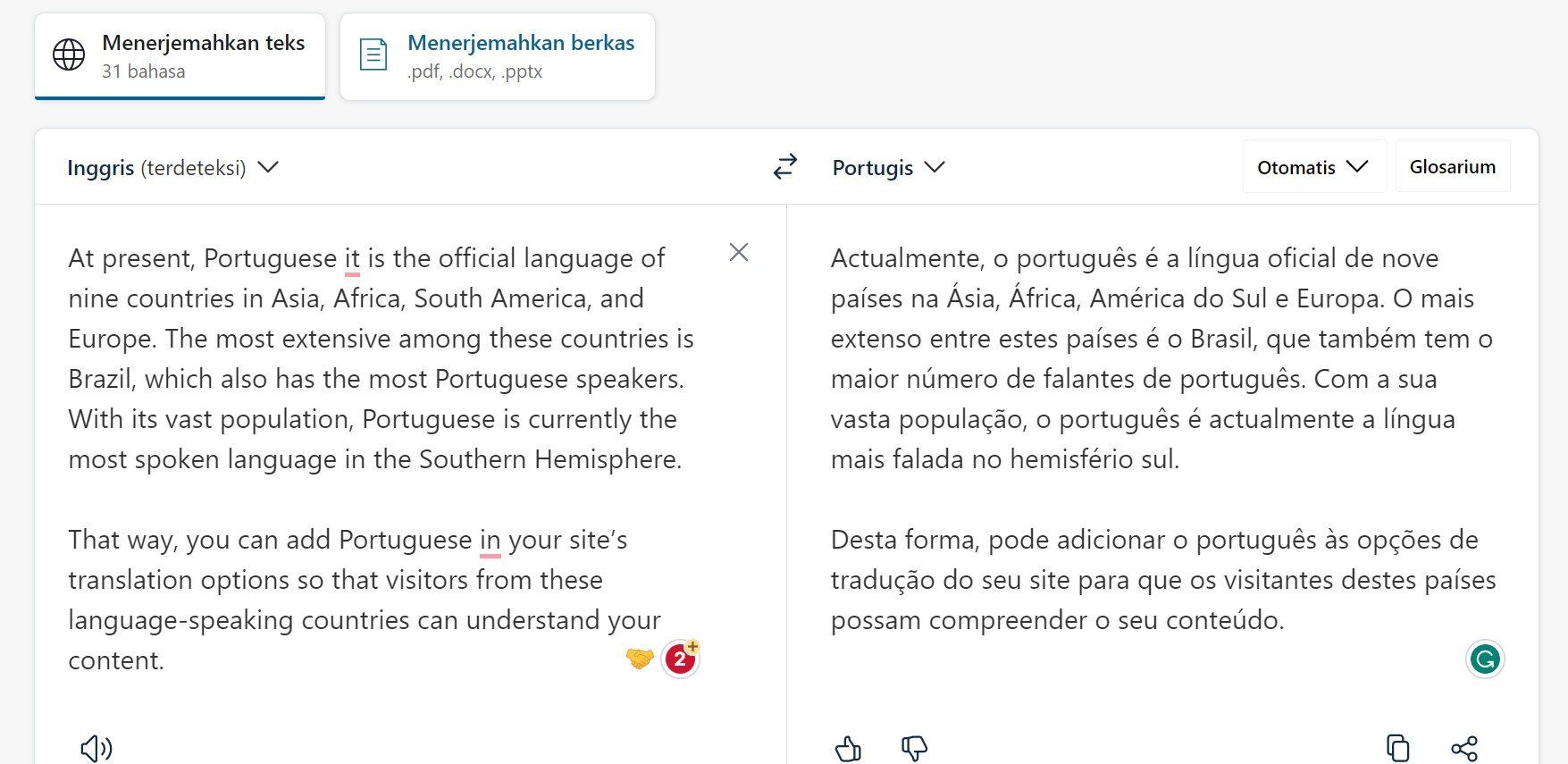
Using the public tool still has the disadvantage that there is no URL in Portuguese to be attached to the Portuguese page content, so your website will not appear on search engines in Portuguese.
At times, certain words and phrases may not be translated due to the limitations of Google Translate or its competitors. This occurs when the text is embedded in an image or other visual element present on a webpage. Even Chrome’s automatic translation feature may not accurately understand such content.
But, you don’t need to worry, there is still another alternative, namely Linguise which uses neural machine translation as its technology. This technology is 100% SEO indexed so that the translation results are still indexed by search engines.
Using neural machine translation for the Portuguese language
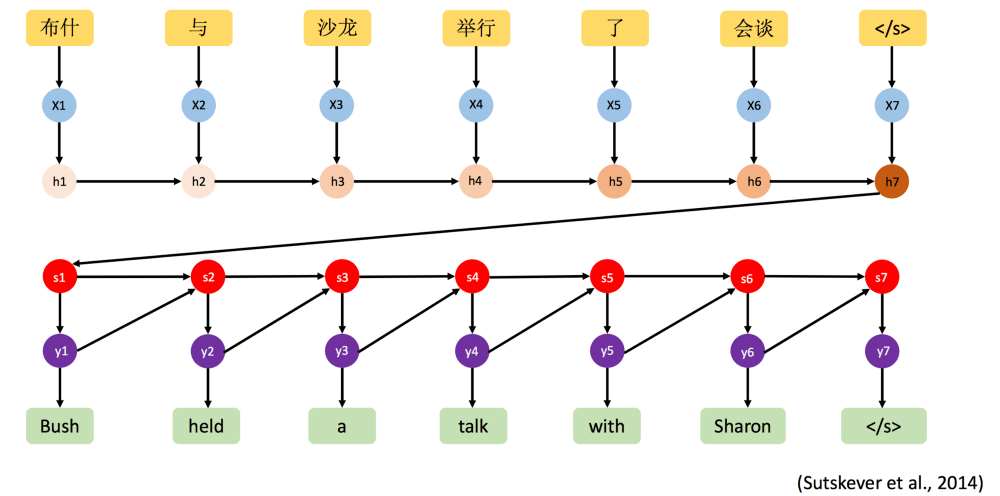
Neural machine translation is considered the most accurate translation option because it uses artificial intelligence to translate it. This technology will automatically translate content from one language to another.
This technology works by following a statistical model to analyze translations and will continuously update its database and translation patterns. Not only is it accurate to use, but NMT is also easy to integrate into various software using the API or SDK.
In addition, when viewed from the cost of using NMT is much more efficient.
Translate the Portuguese language automatically with Linguise
For those of you who are looking for an automatic translation service with NMT technology, Linguise is the solution.
Linguise is an automated translation service that offers a live front-end editor feature, so you can perfect your translation results with a human translator.
Not only translating content, Linguise always optimizes SEO so that the translation results can also be indexed by SEO so that they appear on Portuguese-language search engines.
Immediately below, there are steps on how to translate a website in Portuguese language.
Step 1: Registration and get the API key
The first step is to register for a Linguise account and get an API key. After successfully registering, you will get access to the Linguise dashboard. Just go to Settings menu > then find the API key and copy it to the clipboard.

Step 2: Add Portuguese languages to your list
Next is to add Portuguese to the list of translation options on your site. Here you can add more than 1 language, the image below is just an example.

Step 3: Install & configure the Linguise plugin
Then, go to your site’s dashboard and install the Linguise plugin. Don’t worry, Linguise is compatible with various CMS, be it WordPress, Joomla, or other CMS.
Select the Add plugin menu, then look for the Linguise plugin, then select Install and Activate. If the plugin has been activated successfully, then enter the Linguise plugin settings.
In the column below you can paste the API key that was previously obtained.

Then if you scroll down again, there is a menu to set the flag as the logo for each language. You can position the flag wherever you want.
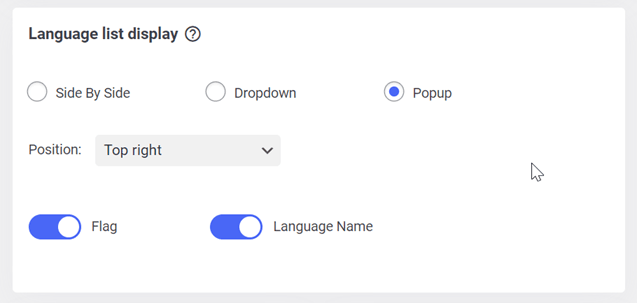
Step 4: Edit the translation Portuguese via the front end
Translating manually by a translator can complement your content. Therefore Linguise provides a live editor feature that you can use to translate directly via the front-end website.
Translation made from the front end can also be edited from the admin dashboard. From the admin dashboard, global translation rules such as content replacement or translation exclusion are likewise available.
This is how the live editor looks that you can use, the example here is from English to French.
Linguise pricing for Portuguese website translations
With Linguise’s free version, you can translate up to 600,000 words within a one-month period. Additionally, for every new domain, you’ll receive an additional free month. No credit card is required for registration.
Suppose you intend to translate your website solely into Russian. In that case, you’ll be able to translate 600 pages, each containing 1000 words, for a fee of $25 per month or $275 per year. There are also smaller plans available for websites with fewer pages and an unlimited translation plan for large websites.
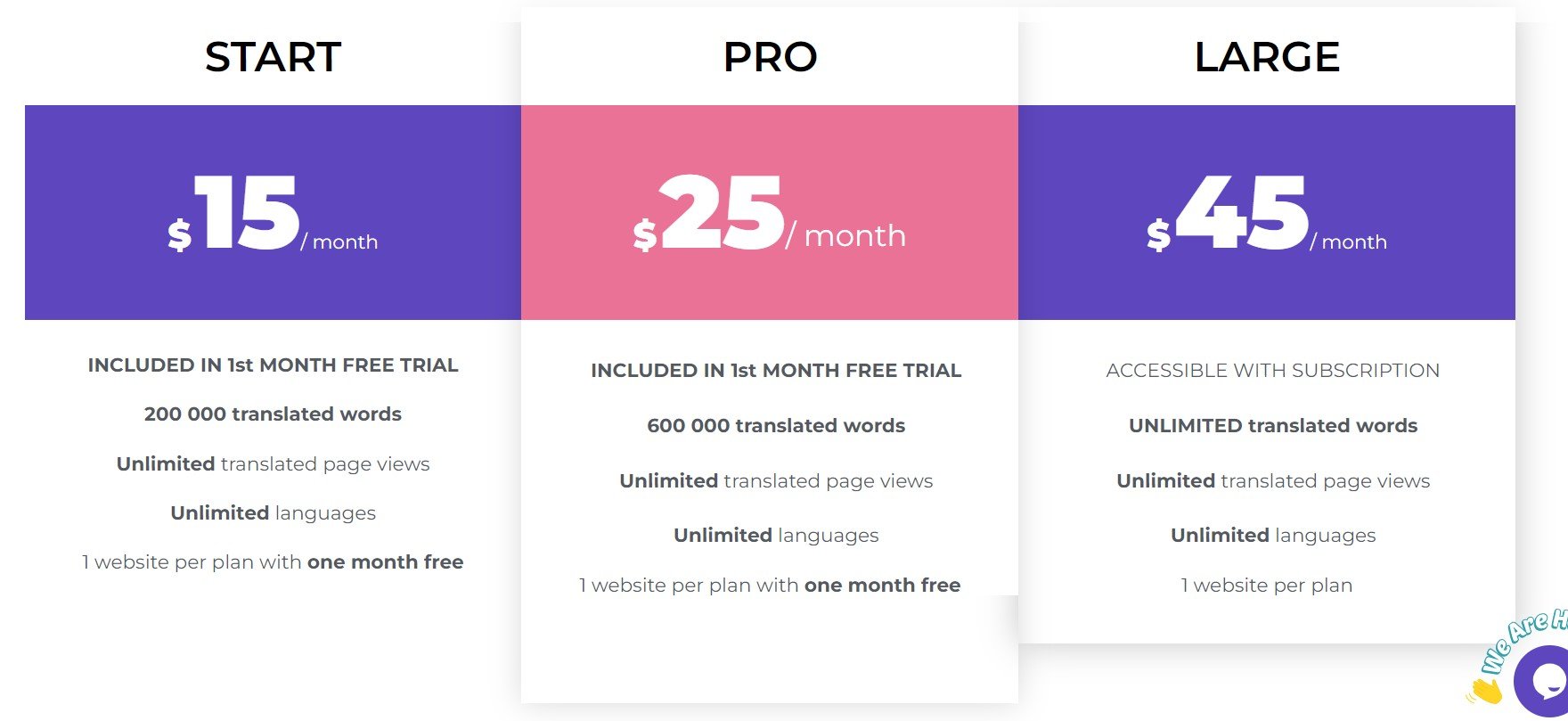
Translate a website in Portuguese with Linguise!
Up here, you already understand what Portuguese is like, how it differs from Brazil, and what methods can be used to translate websites in Portuguese.
By providing the Portuguese language on your website, audiences from countries that speak this language can find your website and content.
In presenting other languages on a website, it is important to choose an automatic translation service that is capable of providing accurate translation results. Linguise, with neural translation technology, is able to provide Portuguese translation results according to the correct spelling.
How, interested in using Linguise? Come on, try the free 1-month feature to try out Linguise features then extend it according to your needs.

